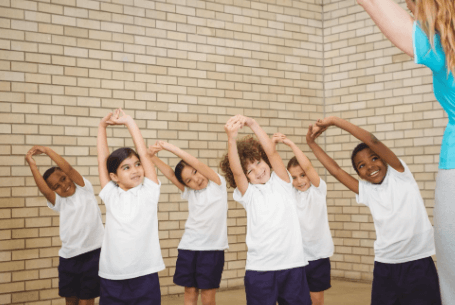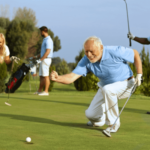Psychologists, educators, and parents have long studied the link between physical activity and academic performance. Athletic benefits are well-known, but cognitive and educational benefits are equally compelling, especially for young children. Tennis, soccer, basketball, and other sports can improve a child’s academic performance. Physical activity boosts brain function and learning ability, which explains this improvement.
Cognitive Development and Sports
The link between athletics and academic performance is cognitive growth. Sports demand coordination, timing, strategy, and quick decision-making, which stimulates brain functions. Tennis develops agility and requires tactical and spatial awareness. Players must anticipate opponents’ moves, prepare, and act fast under pressure. These cognitive challenges can increase brain connectivity, improving executive skills including problem-solving, memory, and attention.
Effects on Neuroplasticity
Physical activity affects neuroplasticity, the brain’s ability to build new neural connections throughout life. Regular sports engagement boosts gray matter in executive function and memory processing brain areas, according to research. Cognitive development in childhood depends on this increase. Sports provide complicated, difficult, and fresh experiences that form neural networks and develop the brain.
Children who play sports can better apply these neural benefits to schoolwork. Tennis skills including focusing on ball movement, calculating angles, and predicting trajectories help improve a child’s numeracy and spatial reasoning. Sporting discipline and concentration can also improve classroom focus and attention spans.
Focus enhances learning.
Educational settings necessitate concentration. Physical activity increases kids’ skills. Tennis players must maintain score, obey complex regulations, and concentrate. This activity keeps kids focused and improves school performance.
Children can improve executive function and ADHD by exercising before or after school. Sports stimulate the frontal lobes, which plan, organize, and control impulses. These abilities are necessary for excellent learning and classroom behavior, thus sports can aid kids academically and otherwise.
Better Memory and Learning
Sport improves memory. Memory and learning require brain blood and oxygen flow, which sports exercise increases. Regular exercise boosts neurotrophins, proteins that support neuron growth and neural health, which aid learning and memory.
Children who play sports consistently improve short- and long-term memory. Excellent for exam prep and learning new stuff. Tennis’ strategic thinking and pattern recognition may help kids learn across areas by enhancing encoding and recall.
Physical Fitness and Cognitive Health
Finally, consistent sports engagement improves physical health and cognition. Good physical health enhances endurance and lowers weariness, allowing kids to study more without feeling exhausted. Sports can also regulate sleep, which is essential for cognitive processing and academic achievement.
Sports improve children’s physical, cognitive, and academic health. Tennis builds discipline, mental engagement, and physical fitness, helping kids reach their academic goals more easily. Regular sports engagement helps youngsters acquire skills and attributes that benefit their academic success and lifelong learning.
Sports for Emotional Resilience and Stress Management
Sports help kids build emotional resilience and stress management skills, which are vital for academic success and life’s problems. Regular sports participation, including tennis and team-based games, improves emotional health and coping in scholastic and social situations.
Competitive and cooperative emotional resilience
Sports naturally teach youngsters emotional resilience by involving wins and losses. Sportsmanship helps children develop emotionally by teaching them to accept defeat and enjoy successes with humility. Sports teach kids to be calm under pressure and handle failure and frustration. Children must manage academic pressures, expectations, and setbacks in the classroom, therefore emotional control is crucial.
Tennis players are typically alone on the court and must use their abilities and resilience to succeed. Independent living promotes self-reliance and self-confidence, which are crucial to emotional resilience. However, team sports teach children about mutual support and the value of working together, which are valuable lessons for collaborative projects and group learning environments in schools.
Physical Activity Reduces Stress
Kids relieve stress through sports. Exercise reduces stress and boosts mood by releasing endorphins. This biochemical boost can help during tests and tournaments. Sports release energy and tension, boosting mental wellness in youth.
Sports teach kids routines, which can aid during tough times. Regular sports training and games reduce tension by promoting predictability. Predictability helps kids arrange academics and exercise to reduce stress.
Self Confidence Increased
Self-esteem and confidence from athletics boost academic and mental wellness. Improve tennis records or assist a team win to enhance kids’ confidence. Self-esteem boosts confidence, class engagement, experimentation, and academic performance.
Sports improve fitness and abilities, helping kids develop good body image. In early growth, strength and capability boost self-esteem. In childhood and adolescence, coaches and teammates’ praise and encouragement boost self-esteem and provide emotional support.
Socializing and Relationships
Sports promote social skills because participants engage with classmates, coaches, and opponents. Kids learn to collaborate, communicate, and settle issues through these encounters. School, where kids work in groups and interact with authorities, demands these skills.
Kids learn responsibility, support, and teamwork in team sports. This can improve kids’ social skills in and out of school by teaching empathy and understanding. Sports alliances and ties provide emotional support and community, improving mental health.
Sports help youngsters manage stress and build emotional resilience, improving academic and social performance. Sports boost emotional, psychological, cognitive, and physical development for life.





 Golf: A Swing at Better Health for Senior Citizens
Golf: A Swing at Better Health for Senior Citizens